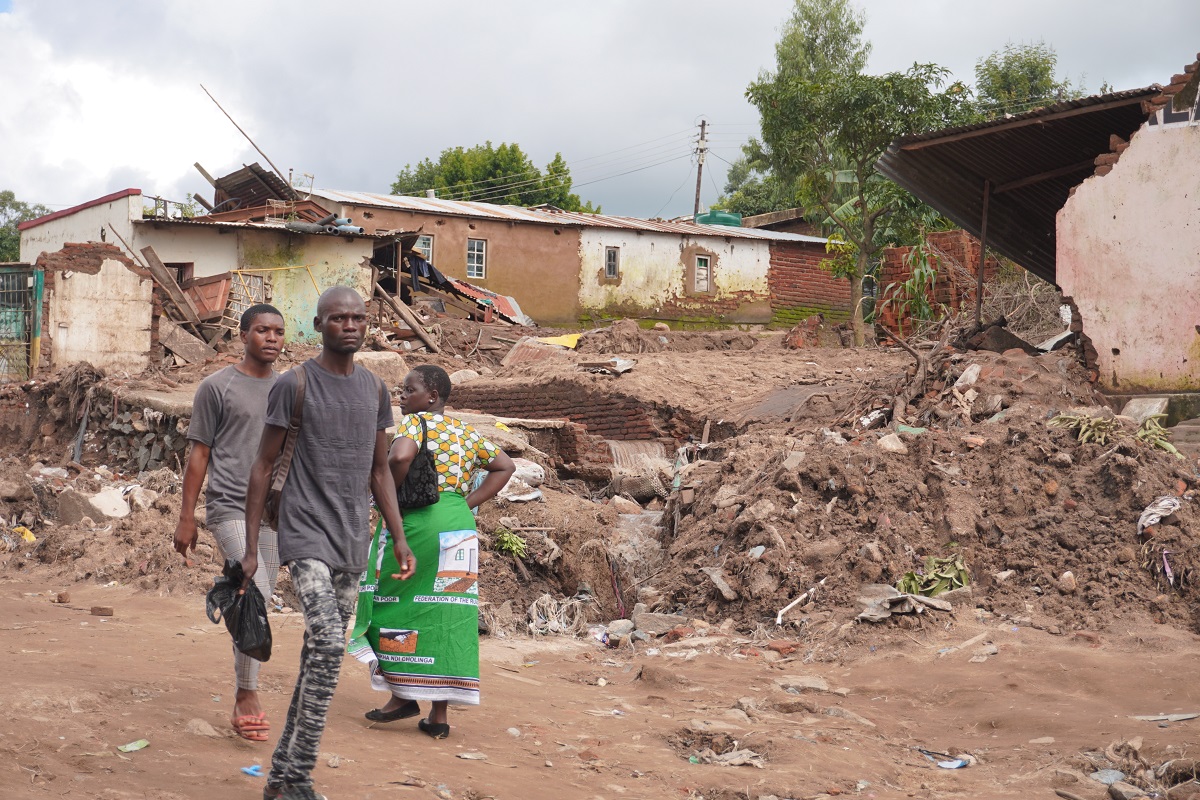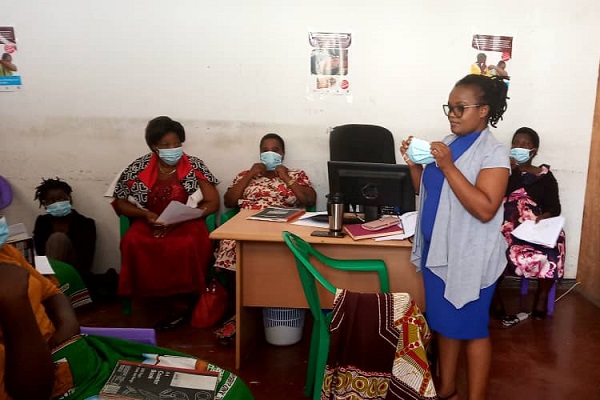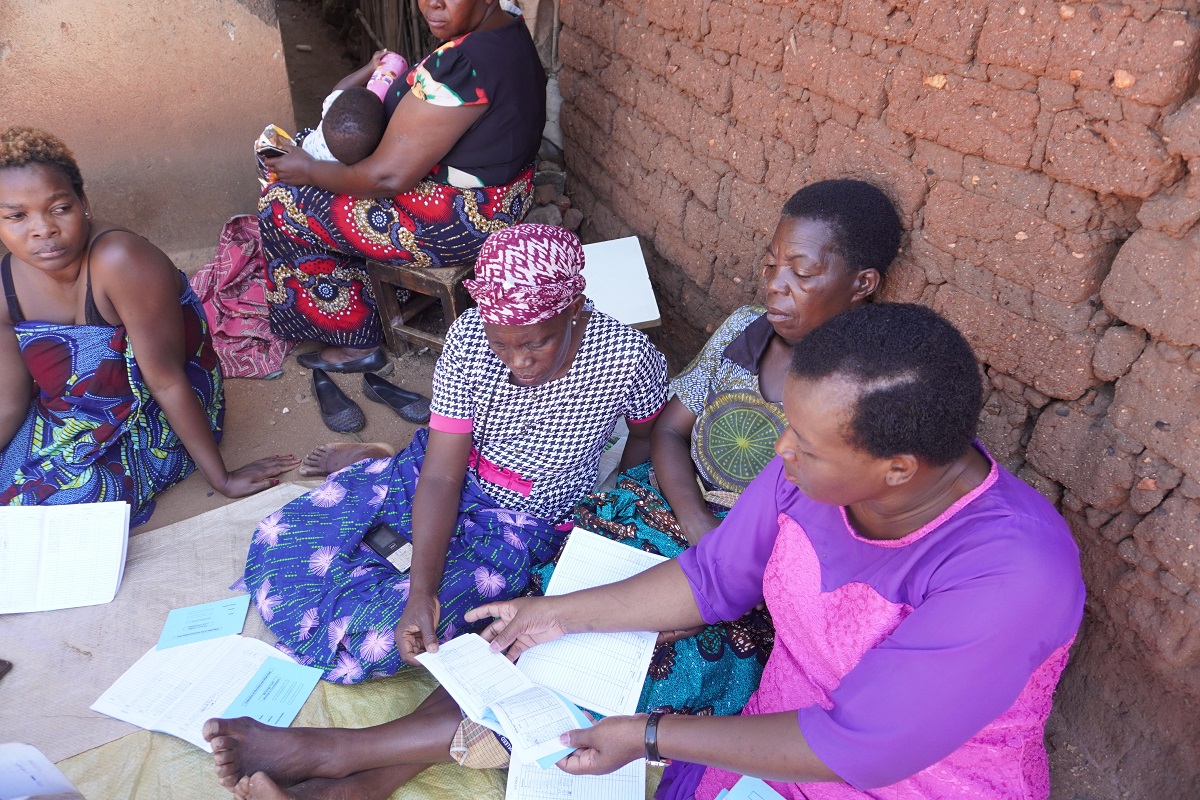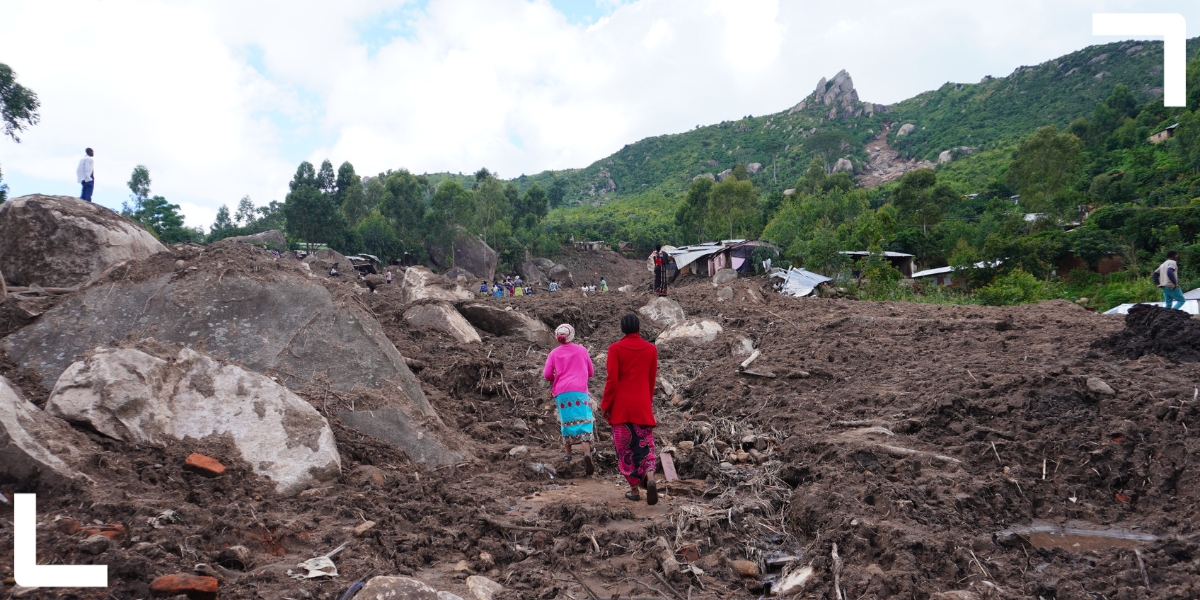Covid Collective
A multi-partner international group, the Covid Collective is working to provide evidence on the social dimensions of the pandemic to inform decisionmaking on Covid-19-related development challenges. Supported by the UK Foreign Commonwealth and Development Office (FCDO), the Covid Collective is based at the Institute of Development Studies (IDS).
As part of the Covid Collective, researchers within ACRC have been involved in projects looking at the impact of Covid-19 on communities and livelihoods in African cities.
By Happiness Zidana and Zilire Luka
Lilongwe City grows at 3.8% per annum, due to high natural population increase and rural–urban migration. As many migrants fail to get jobs in the city, their housing needs are also affected. Consequently, most of the city’s physical growth is informal.
Informal settlements in Lilongwe are home to more than 76% of the city’s population and are facing a convergence of crises that have reshaped their socioeconomic landscape. These include growing poverty inequality, climate-change-induced disasters, the Covid-19 pandemic, a cholera outbreak and looming hunger, among others.
More recently, there has been a significant increase in extensive disasters related to climate change – such as floods, cyclones and tropical storms – that are impacting cities, with losses related to damaged homes, physical infrastructure and livelihoods. Gender, income and location have significant implications for the vulnerability of people. The government and its development partners have continued to take a reactive stance to disaster risks instead of adopting a more proactive and transformative approach, as promoted by the Sendai Framework for Disaster Risk and Reduction 2015–2030. This has exacerbated existing challenges and further endangered residents’ wellbeing.
Contextualising resilience and vulnerability
Both resilience and vulnerability are concepts that have evolved in different disciplines and are applied in different fields of practice – disaster risk management being one. Resilience is “the ability of a system and its component parts to anticipate, absorb, accommodate or recover from the effects of a shock or stress in a timely and efficient manner”. On the other hand, climate risk vulnerability relates to how likely people are to be affected by disasters – with climate change exacerbating the intensity and frequency of such vulnerabilities. Resilience is not the opposite of vulnerability, as an individual can be both predisposed to an impact and able to recover in a timely and efficient manner.
Resilience building is therefore more of a process than an outcome. It puts into perspective processes that need to be changed with the long-term objectives, in order to build coping capacity within a system or, in a disaster context, communities. It means emphasising the need to develop flexible systems that adapt to change, to see change as a part of any system – social or otherwise – and to expect the unexpected.
Building and strengthening resilience is a collective effort. But barriers exist that prevent women from fully participating in this process. Literature points to the fact that women are heavily affected by crises, meaning they play a crucial role in resilience and recovery. However, gender inequalities and norms often disadvantage them. For instance, women are often the primary caregivers in the family – a role which makes them more likely than men to miss work, due to shocks or stresses. Missed work can lead to income loss, which can affect women’s ability to provide for themselves and their families. In turn, this can result in food insecurity and a lack of resources to rebuild their homes or businesses.
Disaster risks have become commonplace, exposing Lilongwe to floods and drought hazards, accompanied by infrastructure damage, among other impacts. This requires the restoration of dambos and greenery along rivers, along with the protection of riverbanks, properties and infrastructure along rivers and streams, and improvement of storm drains and drainage networks. There is evidence that informal settlements in the city of Lilongwe are adopting various coping strategies as they deal with the multiple crises affecting their communities. This blog post discusses some of these strategies.

People living in Lilongwe’s informal settlements have recently been exposed to multiple crises, including floods, cyclones and heavy winds
The crises in perspective
Malawi is highly vulnerable to the impacts of extreme weather events, given its location along the great African Rift Valley, rapid population growth, unsustainable urbanisation, climate variability and change, and environmental degradation. The most common weather-related shocks affecting Malawi include floods, drought, stormy rains and cyclones. Over the past five decades, Malawi has experienced more than 19 major floods and seven droughts, with these events increasing in frequency, magnitude and scope over the years.
Failure of the urban land market is pushing low-income groups into locations that are prone to disasters, and recent studies have shown that four out of every ten non-permanent houses in Lilongwe are now located in areas threatened by floods and other natural hazards. Low-income groups are also noted to have the least resilience, with informal settlement dwellers widely recognised as inherently vulnerable to climate change and other crises.
This is certainly true for Lilongwe, where people living in informal settlements have recently been exposed to multiple crises, including floods, cyclones and heavy winds. This has resulted in declines in family investment in housing and employment opportunities, as well as job losses, income reduction and an expanding wealth gap. Consequently, poverty rates in informal settlements have soared, severely compromising the ability of residents to afford basic necessities. The Department of Disaster Management Affairs (DoDMA) reports that one long-term impact of such crises is the risk of malnutrition facing many children, pregnant women and lactating mothers.
The post Covid-19 crisis
The emergence of the Covid-19 pandemic brought lasting changes to people’s lives in Lilongwe. There has been reported loss of income and employment, due to lockdowns and other disease control measures, travel restrictions constraining mobility, access to markets and livelihood opportunities, and higher costs of staples, such as food. Reduced consumer spending power has led to a decline in demand for goods and services, resulting in decreased revenues and financial instability.

Training on the proper use of facemasks during the Covid-19 pandemic
These economic hardships disproportionately affect marginalised populations living in informal settlements, who already lack access to basic services and face issues such as overcrowding and inadequate healthcare. The pandemic’s economic impact has deepened poverty levels, pushing vulnerable communities further into hardship.
The cholera outbreak
Malawi is experiencing the deadliest cholera outbreak in the country’s history, with over 50,000 cases and over 1,500 deaths since March 2022. In urban areas, the outbreak has thrived in informal settlements as a result of water, sanitation and hygiene (WASH) conditions. In the majority of Lilongwe’s informal settlements, people are still drawing water from unprotected, hand-dug wells, with many families sharing temporary pit latrines and a small percentage practising open defecation. There is evidence that healthcare facilities struggled to cope at the peak of the outbreak, leading to a lot of suffering for families.
According to Lilongwe City Council, when it comes to service delivery, “there is an obvious lack of proper distribution of services… which leads to further economic and environmental problems, jeopardising the sustainability and resilience of urban development in Lilongwe City”. Perhaps the greatest tragedy is that cholera is both predictable and preventable. What is needed is an investment in the WASH sector – including properly designed messaging – to decisively deal with this challenge.
Climate change adding salt to the injury
Climate change presents a complex crisis that affects not only the environment but also vulnerable communities – mostly those in informal settlements. Common challenges facing informal settlements in Malawi include floods, storms and landslides. Further impacts of climate change on informal settlement dwellers include water contamination, health risks and threats to livelihoods. These communities are affected repeatedly throughout the year, but do not have the technical knowledge and resources to respond sustainably and protect themselves against future disasters. The compounding effects of climate change make the challenges facing people living in informal settlements even more difficult to address.
The looming hunger crisis
The Integrated Food Security Phase Classification (IPC) reported that between June and September 2022, an estimated 2.6 million people – representing 13% of Malawi’s population – experienced high acute food insecurity, with a further 6.5 million people requiring action for disaster risk reduction and livelihood protection. Natural hazards, disease outbreaks and declining livelihood opportunities resulting from the impact of Covid-19 have been intensifying the food security crisis. In urban areas, the Covid-19 crisis has limited job opportunities and made income sources more precarious, especially for people working in the informal sector or depending on manual jobs. This means that urgent action from duty bearers is required to protect livelihoods and reduce food consumption gaps.
Building resilience amid adversity
Through our research, we have found that despite the myriad challenges facing informal settlements in the city of Lilongwe, there is evidence of resilience. Residents are using various coping strategies to get through the multiple crises they are facing, including:
- Diversifying income sources: Relying on a single source of income can make individuals vulnerable to sudden shocks or long-term changes. Diversification is a risk management strategy that involves a wide portfolio of activities. Families in informal settlements are combining petty jobs with setting up small businesses, in an effort to stabilise their income.
- Embarking on urban agriculture: Small-scale urban farming in informal settlements is improving food security by enabling households to grow their own fresh produce and reducing their reliance on expensive or inaccessible food sources. By engaging in urban agriculture, households are generating income through selling surplus produce, contributing to economic empowerment.
- Using community savings groups: Savings groups allow residents to pool their resources and provide each other with financial support. These are decentralised, non-institutional groups that provide people excluded from the formal banking sector with a trusted, accessible and relatively simple source of microfinance. Additionally, savings groups served as a platform for social support (including community mobilisation), learning and capacity building when Covid-19 was at its peak.
Along with these approaches, limited access to healthcare has also led residents to rely on alternative methods to address health issues, such as using traditional medicine in an attempt to treat symptoms. Beyond savings groups, residents have additionally formed community networks to provide each other with emotional and practical support. These strategies have helped residents to mitigate financial hardships and build resilience in the face of multiple crises.

Savings groups allow residents to pool their resources and provide each other with financial support
Conclusion
Post-crisis reconstruction presents an opportunity for affected populations. Typically, men benefit more from such opportunities, so it is crucial to ensure recovery support reaches women as well. While setting targets for reaching women with livelihood support is essential, addressing the barriers that hinder their access to support is equally important. As discussed earlier, livelihood diversification is one strategy that can help people manage the impact of external risks and protect them from shocks. However, building the resilience of people living in informal settlements – and more especially those who are vulnerable – goes beyond income diversification to issues of governance and its impact on service delivery in these settlements.
To this end, with support from CCODE and the Malawi Federation of SDI, informal settlement residents are gathering and using community data to advocate for improved service delivery in the face of these multiple crises. This approach has proven effective in addressing priority needs of communities in the past. Using community-generated resources, some groups have started implementing community-led initiatives that address pressing issues, such as waste management and youth employment. As a result, despite present difficulties, there is hope for positive progress stemming from their unwavering resilience and determination. These communities are actively engaged in collective endeavours, employing coping strategies and spearheading community-led initiatives, all aimed at forging a path towards a more promising future.
A version of this blog post originally appeared on the CCODE Malawi website and has been republished here with permission.
Photo credits: Know Your City TV Malawi team
Note: This article presents the views of the author featured and does not necessarily represent the views of the African Cities Research Consortium as a whole.
The African Cities blog is licensed under Creative Commons Attribution-NonCommercial-NoDerivatives 4.0 International (CC BY-NC-ND 4.0), which means you are welcome to repost this content as long as you provide full credit and a link to this original post.


